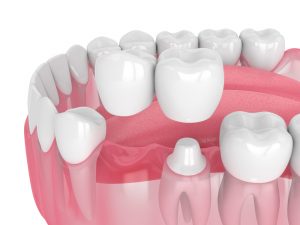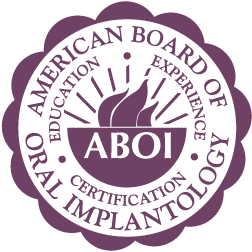Cantilever Dental Bridges in Havre de Grace, MD
Please note we may not offer this service at our office. Call (410) 939-5800 to learn more.
Please note we may not offer this service at our office. Call (410) 939-5800 to learn more.
In the realm of restorative dentistry, numerous innovative solutions have been developed to tackle the challenges associated with missing teeth. Among these, cantilever dental bridges have emerged as a unique method for tooth replacement. Unlike traditional bridges that require support from both sides of a gap, cantilever bridges are distinctively designed to anchor to only one adjacent tooth.
 Discover more about our cantilever dental bridges guide by connecting with our Havre de Grace, MD dentist at (410) 939-5800.
Discover more about our cantilever dental bridges guide by connecting with our Havre de Grace, MD dentist at (410) 939-5800.
A cantilever dental bridge is used to replace a missing tooth when there is only one adjacent supporting tooth available. Unlike traditional bridges, which are secured on both sides by dental crowns on the adjacent teeth, a cantilever dental bridge is only attached to a crown on one side. The tooth adjacent to the artificial tooth is commonly referred to as the abutment tooth.
Cantilever bridges are often constructed from ceramic and metal or entirely from ceramic material, making them ideal for replacing a missing front tooth.
Cantilever dental bridges offer several advantages, including:

Schedule an appointment with your Havre de Grace, MD dentist to discuss your tooth replacement needs. During the consultation, your dentist will assess your oral health, the condition of adjacent teeth, and the gap that requires filling.
If a cantilever bridge is deemed suitable, your dentist will devise a treatment plan. This plan will cover the design of the bridge, material selection, and the overall procedure approach.
On the procedure day, your dentist will administer a local anesthetic to numb the area around the missing tooth and the adjacent teeth, ensuring your comfort during the treatment.
The adjacent tooth (or teeth) intended to support the cantilever bridge will be prepared by removing a small amount of enamel to create space for the bridge.
After preparing the tooth, your dentist will take impressions of your teeth, which will be used to create a precise mold sent to a dental laboratory for bridge fabrication.
While your permanent bridge is being crafted, your dentist may place a temporary bridge to protect the prepared tooth and enhance aesthetics.
A skilled dental laboratory technician will use the impressions to create a custom-made cantilever bridge, designed to match the color, size, and shape of your natural teeth for a seamless look.

Once the permanent bridge is ready, you will return to the dentist’s office. The temporary bridge, if placed, will be removed, and the new cantilever bridge will be carefully fitted and adjusted as necessary.
The bridge will be bonded to the prepared adjacent tooth using dental cement. The dentist will ensure a comfortable fit and proper alignment of your bite with the new bridge.
Your dentist will make any final adjustments to ensure your new bridge feels comfortable and functions properly when biting and chewing.
Your dentist may recommend a cantilever bridge for various reasons, such as:
203 S. Washington Street
Havre de Grace, MD 21078
(410) 939-5800




Cantilever dental bridges, with their unique design and benefits, provide a tailored solution for individuals facing specific tooth replacement challenges. By leveraging the strength of a single adjacent tooth, cantilever bridges offer a simpler procedure, reduced invasiveness, and cost-effective outcomes.
Contact Family Implant and Reconstructive Dentistry in Havre De Grace, MD, at (410) 939-5800 today to schedule a consultation. We’re delighted to welcome new and returning patients from the Havre De Grace area, including Perryville, Aberdeen, and Churchville, MD.